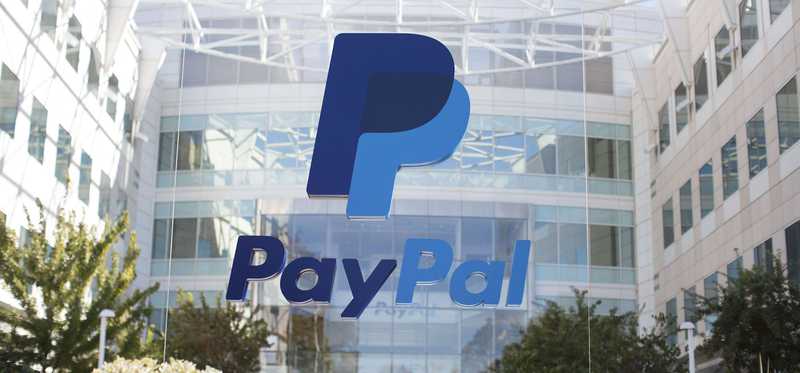10 Companies Set to Dominate the Next Decade

10 Companies Set to Dominate the Next Decade
Staying ahead of the competition
Projecting the market's biggest winners 10 years out (or even 10 months out) isn't an exact science. Fortunately, investors can look at some of the biggest trends that are developing right now and analyze how companies are reacting to them to find the likely winners.
Whether it's artificial intelligence, cloud computing, fintech, autonomous vehicles, or creating content for consumers' ever-increasing desire for streaming video, the companies listed here are betting on these trends -- and it's what will likely keep them ahead of the competition over the next decade.
Previous
Next

1. Amazon
Amazon (Nasdaq: AMZN) is, of course, best known for being the dominant online retail company in the U.S. -- in 2018 nearly 50% of all online sales in the U.S. happened on the company's platform. The company is using machine learning, a type of artificial intelligence, to ensure that its platform continues to serve the most relevant products its customers are searching for. It also boasts more than 100 million Prime members now, which helps keep its customers tied into its ecosystem and spending more money on its website.
But Amazon's ability to beat its competitors -- and the market -- over the next decade comes from more than just its retail prowess. For one, Amazon has also expanded its advertising business and will account for 7% of the U.S. digital advertising market by 2020. That's still behind Facebook and Alphabet's (Nasdaq: GOOG) (Nasdaq: GOOGL) Google's dominance, but Amazon has another trick up its sleeve. The company's Amazon Web Services (AWS) business is tapping into the expanding cloud computing market and already leads the space with 32% market share. AWS is already the source of most of Amazon's profits -- and it's one of the key reasons why the company will continue to dominate the next decade.
Previous
Next

2. Alphabet
Alphabet, the parent company of Google, has its hands in so many things it's difficult to list all of the ways the company will win over the next decade. But there are two key areas that Alphabet is likely to stand out: advertising and cloud computing.
It's no secret that Google is the undisputed advertising leader. The company generates about 85% of its total 2018 sales from its search advertising and its many ads across its plethora of services. With the company locked into a advertising duopoly with Facebook -- and Google's services more popular than ever before -- it's not likely that the company will lose its advertising lead anytime soon.
But Alphabet is betting on cloud computing as well -- and will likely earn more money from this market in the coming years. Google currently takes the No. 3 spot in the cloud space, but the company has improved its position in the market share over the past few years, and now has 9.5% market share, up from 7.6% at the end of 2017. If that weren't enough, Alphabet's big bet on other technologies -- from autonomous vehicles to healthcare, to mobile tech -- means that the company is playing the odds in the tech market to see what sticks. All of which nearly ensures the company of coming out a winner in the coming years.
Previous
Next

3. Microsoft
Microsoft (Nasdaq: MSFT) may not seem like one of the most obvious choices to put on this list, but there's one good reason why this old tech giant deserves to be here. Microsoft has successfully transitioned from the Windows software maker it once was into the booming cloud computing powerhouse it is now. Not all tech companies have successfully changed their identity, and Microsoft stumbled for a bit in the mobile world, but make no mistake: this company is still destined for greatness.
Consider that Microsoft's public cloud computing business, the foundation of which is its Azure product, now has 16.5% of the market with only Amazon's AWS taking more. In the most recent quarter Microsoft's commercial cloud computing business, which includes a laundry list of services, reached $9 billion, a 48% spike from the same time a year ago. And its popular Azure platform saw its sales skyrocket 76%. With Microsoft already the second most important cloud computing player in the market, it's established itself in a burgeoning tech trend that will only continue to expand over the next 10 years.
Previous
Next

4. Apple
Another tech company that's in the midst of a transformation of its own is Apple (Nasdaq: AAPL). After more than a decade of selling its ultra-popular iPhone and earning more than 60% of its total sales from the device, sales of iPhones fell 15% in the most recent quarter and Apple CEO Tim Cook now talks about the company in terms of what it can offer them through services, as opposed to hardware.
To be sure, Apple is still in the beginning of this pivot to services. The company announced just last month that it'd begin offering a new television streaming service called Apple TV+ -- complete with original content -- this fall. The company is also launching a new video game service, a new credit card, and already introduced a new paid news service called Apple News+. So if Apple's services ambitions are still in the works, what evidence is there that it'll be able to dominate with these new products like it did with its hardware? The most recent proof comes from Apple's success with its music streaming service, Apple Music. The company launched the service four years after Spotify entered the U.S. market and yet Apple recently outpaced Spotify with more paying members in the U.S. That success shows that Apple knows how to move into new service markets after its competitors have and still thrive. That ability is what will likely make Apple's forthcoming service a success -- and keep this company humming along for years as it enters its next tech phase.
Previous
Next

5. Netflix
Netflix (Nasdaq: NFLX) has built its video dominance one brick at a time, starting first with its DVD-by-mail service, then by snagging large licensing deals, to building out its own original television shows and movies. The company now boasts 58.5 million paying subscribers in the U.S. and 80.8 million throughout the rest of the world. But the video streaming market is becoming crowded quickly. Amazon's Prime Video service continues to build out its own original and award-winning content, Hulu continues to add subscribers, and new competition from Apple and Disney (NYSE: DIS) shouldn't be taken lightly.
So why will Netflix continue to thrive? First, because the company has a first-mover advantage in this market. When consumers think of a streaming video service, the first to come to mind is likely Netflix. Second, the company is spending money hand-over-fist to keep that dominance. In 2019 Netflix will spend $15 billion to create original content for its service. While competitors have Netflix in their sights, the company's 139 million subscribers and its ever-expanding video content library mean that Netflix is likely to thrive for years to come.
Previous
Next

6. The Walt Disney Company
The first thing you might think about when hearing the words Walt Disney is the company's famous theme parks, but over the past few years, Disney has begun building out video content opportunities like never before. Take the company's $4 billion purchase of Marvel Studios in 2009 that gave Disney ownership of the uber-popular superhero movie franchises. Add the company's $4 billion purchase of LucasFilm and all things Star Wars in 2012 and its purchase of Twenty-First Century Fox that just closed last month and Disney has -- in the just the past few years -- morphed into a video content powerhouse.
But what makes these purchases even more monumental is the fact that Disney just announced a new video streaming service of its own, called Disney+, which is where much of the content and characters it's purchased will now live. In the coming months, Disney+ will be the place to stream Marvel movies, Star Wars movies, The Simpsons, a host of original new content, and old Disney favorites that were once locked up in Disney's Vault. Disney's ability to read the room, and play to its strengths in the content distribution and ownership market, mean that betting on Disney for the next decade is likely a wise move.
Previous
Next

7. NVIDIA
NVIDIA (Nasdaq: NVDA) doesn't have the same name recognition as other companies on this list, but there are a couple of reasons it deserves to be here. For one, the company is one of the dominant graphics processing unit (GPU) companies in the world. Its chips are powering the expansion of desktop gaming.
But while gaming is essential to the company, it's artificial intelligence that will make this company a winner in the next decade and beyond. That's because GPUs are particularly good at helping artificial intelligence computers process critical data, like image information. Already, Facebook, Microsoft, Amazon, and Google use NVIDIA's GPUs for some of their AI systems. NVIDIA believes that artificial intelligence computing will be a key growth area in the coming years and with the company's chips already being used in everything from AI services to driverless cars, there's no stopping this GPU maker.
Previous
Next

8. Mastercard
Mastercard (NYSE: MA) may not have the same reach as its rival Visa does when it comes to credit cards, but the company's business is no less impressive. The company has nearly 2.5 billion cardholders worldwide, and in the most recent quarter, Mastercard's sales popped 15% year over year and its gross dollar volume (the amount spent using the company's cards) jumped 14% from the year-ago quarter.
What's great about Mastercard's opportunity over the next decade is the global shift from cash to electronic transactions. Cash is still by far the most widely used way to pay for services across the globe, but more and more consumers are beginning to leave cash behind. For example, just 31% of transactions are completed with cash in the U.S. As more consumers shift to cashless payments, Mastercard will benefit from the fees it collects every time one of its cards are used (whether physically in a store, online, or through an app purchase). And Mastercard's impressive 59% adjusted operating margin means that as the world slowly shifts away from cash, this card issuer stands to benefit even more than it has from its lucrative business in the past.
Previous
Next

9. Shopify
While Amazon gets (and deserves) a lot of attention in the online retail space, there are other fantastic long-term plays in the e-commerce market, one of which is Shopify (NYSE: SHOP). The company has created its own platform of services for merchants to build their online presence and easily sell their merchandise.
In a world where many small and medium-sized businesses are still trying to figure out how to sell their goods online, Shopify is their one-stop shop for getting their businesses online. The company is growing by leaps and bounds, from 500,000 merchants in mid-2017 to 800,000 now. Shopify's sales have grown along with those new customers as well, and revenue in the most recent quarter popped 54% year over year. And there's plenty of runway for more growth from this company. U.S. e-commerce sales accounted for only 14% of all retail transactions in the country in 2018, which means that as e-commerce expands, Shopify and it's growing list of merchants will be ready to grow right along with it.
ALSO READ: Why Shopify Is the Amazon of Small Business
Previous
Next

10. PayPal Holdings
PayPal Holdings (Nasdaq: PYPL) is one of the biggest electronic payment platforms in the country, and its reach continues to spread across the globe. About half the company's 267 million users are outside of the United States and it's likely that PayPal still has lots of opportunities to benefit from the growing online payments market. PayPal CEO Dan Schulman believes the digital payments industry could grow into a $100 trillion market. Already PayPal makes about 41% of its total payment volume (the dollar amount from transactions) from its mobile business, which means the company is perfectly poised to grow alongside consumers' shift to more electronic transactions.
Additionally, PayPal is already benefiting from the expanding person-to-person (P2P) payment trend, where users split restaurant checks, pay rent, and pay each other using mobile apps. PayPal's popular Venmo app is the company's bet on P2P payments, and payment volume grew 80% in the most recent quarter. With the company already being a dominant force in the online payment transaction market and quickly taking a leading role in P2P payments, PayPal is setting itself up to maintain its payment leadership position over the next decade.
Previous
Next

Keep this in mind
All of the companies listed here are playing the long game in their businesses, which means that while some of them will likely experience some short-term volatility, each one has already built out a dominant position in their respective market (or is quickly laying the foundation now).
There's no sure bet in the stock market, of course, but investors can expect the companies on this list to keep their eye on their long-term goals while they vigorously pursue new trends. That focus, and the current lead that most of these companies already have over their peers, should help them come out ahead over the next decade.
John Mackey, CEO of Whole Foods Market, an Amazon subsidiary, is a member of The Motley Fool’s board of directors. Suzanne Frey, an executive at Alphabet, is a member of The Motley Fool’s board of directors. Teresa Kersten, an employee of LinkedIn, a Microsoft subsidiary, is a member of The Motley Fool’s board of directors. Randi Zuckerberg, a former director of market development and spokeswoman for Facebook and sister to its CEO, Mark Zuckerberg, is a member of The Motley Fool's board of directors. Chris Neiger has no position in any of the stocks mentioned. The Motley Fool owns shares of and recommends Alphabet (A shares), Alphabet (C shares), Amazon, Apple, Facebook, Mastercard, Microsoft, Netflix, NVIDIA, PayPal Holdings, Shopify, Visa, and Walt Disney. The Motley Fool has the following options: long January 2020 $150 calls on Apple and short January 2020 $155 calls on Apple. The Motley Fool has a disclosure policy.
Previous
Next
Invest Smarter with The Motley Fool
Join Over Half a Million Premium Members Receiving…
- New Stock Picks Each Month
- Detailed Analysis of Companies
- Model Portfolios
- Live Streaming During Market Hours
- And Much More
READ MORE
HOW THE MOTLEY FOOL CAN HELP YOU
-
Premium Investing Guidance
Market beating stocks from our award-winning service
-
The Daily Upside Newsletter
Investment news and high-quality insights delivered straight to your inbox
-
Get Started Investing
You can do it. Successful investing in just a few steps
-
Win at Retirement
Secrets and strategies for the post-work life you want.
-
Find a Broker
Find the right brokerage account for you.
-
Listen to our Podcasts
Hear our experts take on stocks, the market, and how to invest.
Premium Investing Services
Invest better with The Motley Fool. Get stock recommendations, portfolio guidance, and more from The Motley Fool's premium services.